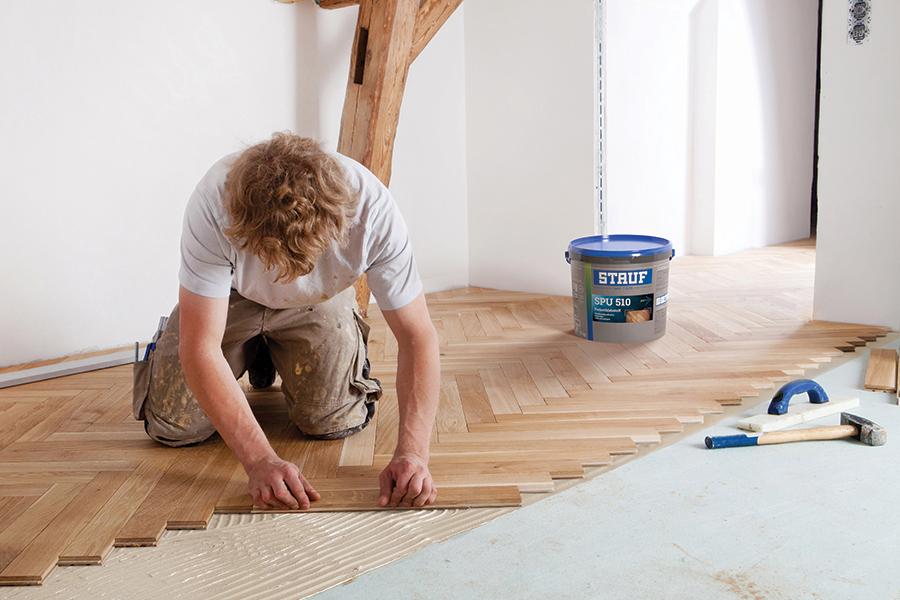CAN highly efficient chemical products and ecological responsibility be reconciled? The experts at STAUF says they’ve answered this question with a clear ‘yes’ with the development of the new ProForce product range.
The manufacturer of ‘high-quality adhesive systems for floor, wall and outdoor coverings, has developed three adhesives that cover the most diverse areas of parquet installation, but all have two essential properties: they have a significantly lower density and thus a much greater range than products previously available on the market’.
Adds the company: ‘STAUF M2A 910 from the dispersion adhesives range, STAUF SPU 510 from the silane adhesives range and STAUF PUK 410 from the polyurethane adhesives range represent the TOP product in the STAUF portfolio in our technology area with outstanding properties and application approvals.’
‘Wider range, less weight’
With these new developments, STAUF says it’s making a further contribution to greater sustainability in construction chemistry, as they reportedly allow significantly more square meters of parquet to be installed per kilogram of adhesive.
‘In addition, the low-density adhesives are significantly lighter than conventional adhesives. The lower weight saves resources, has a favourable effect on transport costs and emissions, and above all is easy on the craftsman. The higher range of about 40%, depending on the adhesive, ensures correspondingly lower consumption.’
‘Bucket made from 100% recycled plastic’
However, STAUF says it’s not only focused on saving energy and resources and reducing CO2 emissions, but also on the recyclability of the packaging: the buckets of ProForce adhesives are said to be made from 100% recycled plastic – which is post-consumer recycled (PCR) plastic.
Says Stauf: ‘This material is derived from plastic packaging from consumer waste. It’s a robust material that doesn’t require fossil raw materials to produce. Because PCR is made entirely from waste, it contributes to a reduction in CO2 emissions, unlike other plastics. Specifically, it saves 36% CO2 per bucket.’
The company concludes: ‘Since STAUF has also replaced the metal handles with handles made of plastic, the buckets can be easily recycled 100% after use and returned to the cycle without additional effort.’
www.stauf.de
Please click to view more articles about
> Stauf <

